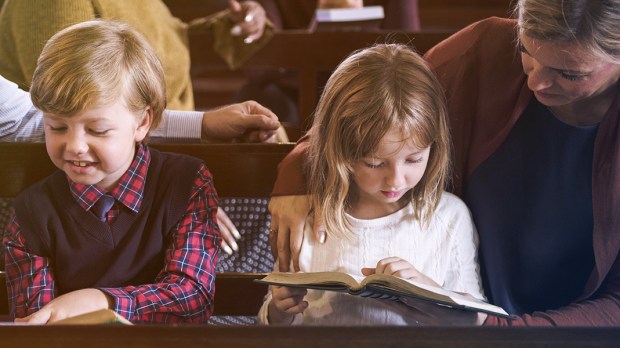Even if the role played by parents in educating their children in the Faith is essential and irreplaceable, the participation of other family members should never be overlooked. They should work alongside the parents so that children can grow in peace and harmony.It’s vital that little ones see their grandparents, uncles, aunts, and other family members participating in prayer, at Mass, and providing an example of Christian living. Later on in their lives, children might become more influenced by the examples that other family members provided to them than by those offered by their parents.
Give your advice while respecting the choices made by the parents
When grandparents prepare for their grandchildren’s visit, they inquire about habits, food choices, etc. They should also ask about the spiritual needs of the child. As in all other aspects of a child’s life, vacations and times spent outside the family should provide stability vital to his or her development, while at the same time offering exposure to other opinions and possibilities.
In addition, as a family member you can help parents to teach their children about the Faith: sharing ideas, advice or simply providing examples that can build trust and the desire to do more and do better, demonstrating without unnecessary words how children can progress along their path to God.
The business of spiritual education is often a subject that is not easily discussed within a family, however — even when there is a need of advice or encouragement.
Set a good example
It’s important to cultivate an atmosphere of trust where children know they are welcomed and loved for who they are, without judgment or scorn. A climate of discretion is essential, one in which people can speak without fear of having their words repeated — not out of secrecy, but out of respect. Support provided by grandparents (among others) can be offered during significant moments marking the life of a young Christian such as baptism, First Communion, etc.
As a family member, you can greatly contribute to cultivating the fervor of a child by, for example, placing importance on the religious aspect of a holiday, instead of the secular or family celebration that surrounds it. Another example is showing up early at a First Communion Mass so the child can see that his or her loved ones take it seriously. It’s also vital to help the child focus on the essentials by offering appropriate gifts.
What presents to give (not just anything)

Presents are actually another way of participating in the spiritual education of a child.They should not just be reserved for religious occasions or consist exclusively of religious object and books. At Christmas and birthdays that would certainly produce an opposite effect! What counts the most is that you’re always ready to participate in the Christian education of the child. We are not Christians only while we pray or attend Mass. We remain Christian at all times and in all places.
As children play, read, or listen to music, they should be able to grow in the Christian environment. There are toys and books that compliment their spiritual education and those that do the contrary. Naturally, this also depends on the use that is being made of them. As a supplement, you can offer a religiously themed gift, without you going overboard — such as a beautiful illustrated book that allows you to broach basic questions of Faith with the child.
Fortunate are the children who can rely on their grandparents, uncles, aunts, and other family members to help them on their path to God.
Christine Ponsard

